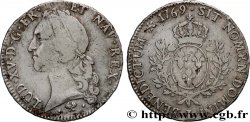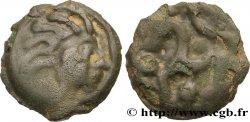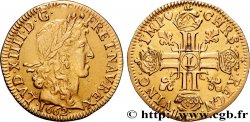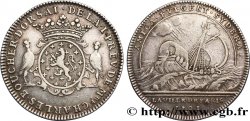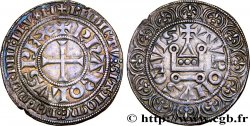Back 1/1
Live auction - bry_888857 - LOUIS XV THE BELOVED Demi-louis d'or aux écus ovales, buste habillé 1730 Toulouse
You must signin and be an approved bidder to bid, LOGIN TO BID. Accounts are subject to approval and the approval process takes place within 48 hours. Do not wait until the day a sale closes to register. Clicking on "BID" constitutes acceptance of the terms of use of cgb.fr private live auctions.
Bids must be placed in whole Euro amounts only. The sale will start closing at the time stated on the item description; any bids received at the site after the closing time will not be executed. Transmission times may vary and bids could be rejected if you wait until the last second. For further information check the Live auction FAQ
All winning bids are subject to a 18% buyer’s fee.
All winning bids are subject to a 18% buyer’s fee.
| Estimate : | 2 100 € |
| Price : | 1 400 € |
| Maximum bid : | 1 901 € |
| End of the sale : | 05 March 2024 18:09:38 |
| bidders : | 1 bidder |
Type : Demi-louis d'or aux écus ovales, buste habillé
Date: 1730
Mint name / Town : Toulouse
Quantity minted : 2298
Metal : gold
Millesimal fineness : 917 ‰
Diameter : 19 mm
Orientation dies : 6 h.
Weight : 4,04 g.
Edge : cordonnée
Rarity : R2
Coments on the condition:
Ce demi-louis est frappé sur un flan large et légèrement irrégulier. Monnaie avec de hauts reliefs au droit, mais présentant de légères hairlines suite à un ancien nettoyage
Catalogue references :
Predigree :
Monnaie provenant de la collection Fernand Arbez
Obverse
Obverse legend : LUD. XV. D. G. FR. - ET NAV. REX..
Obverse description : Buste juvénile de Louis XV à gauche, drapé ; (Mm) sous le buste.
Obverse translation : (Louis XV, par la grâce de Dieu, roi de France et de Navarre).
Reverse
Reverse legend : CHRS. REGN. VINC. IMPER (MG) 1730.
Reverse description : Deux écus ovales de France et de Navarre, sous une couronne ; au-dessous la lettre d'atelier.
Reverse translation : (Le Christ règne, vainc, commande).
Commentary
D’après nos recherches en archives, 2.298 demi-louis ont été frappés en 1730 à Toulouse et 4 mis en boîte.







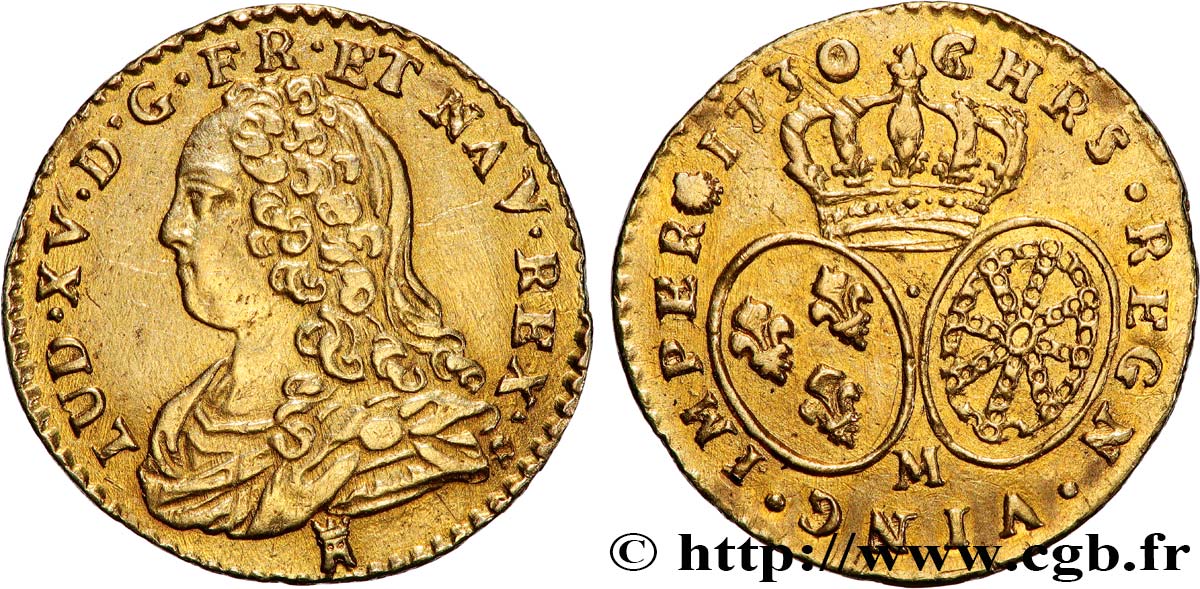
 Report a mistake
Report a mistake Print the page
Print the page Share my selection
Share my selection Ask a question
Ask a question Consign / sell
Consign / sell
 Full data
Full data


